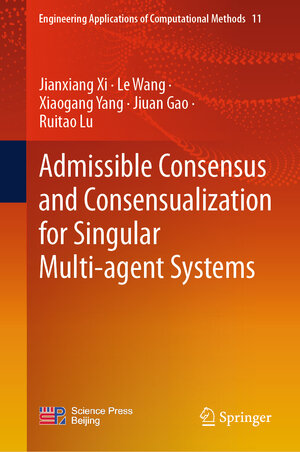
“This book enriches the research on the consensus problems of singular multi-agent systems, which contains some published results of the authors in some well-known journals in the field of the cooperative control. It may be suitable to be utilized as the graduate textbook as well as a reference textbook for the researchers in this field. The reviewers hope that the current book will gain more and more readers and will benefit their research.” (Peijun Wang, zbMATH 1533.93002, 2024)
Admissible Consensus and Consensualization for Singular Multi-agent Systems
von Jianxiang Xi, Le Wang, Xiaogang Yang, Jiuan Gao und Ruitao LuThis book explores admissible consensus analysis and design problems concerning singular multi-agent systems, addressing various impact factors including time delays, external disturbances, switching topologies, protocol states, topology structures, and performance constraint. It also discusses the state-space decomposition method, a key technique that can decompose the motions of singular multi-agent systems into two parts: the relative motion and the whole motion. The relative motion is independent of the whole motion. Further, it describes the admissible consensus analysis and determination of the design criteria for different impact factors using the Lyapunov method, the linear matrix inequality tool, and the generalized Riccati equation method. This book is a valuable reference resource for graduate students of control theory and engineering and researchers in the field of multi-agent systems.




